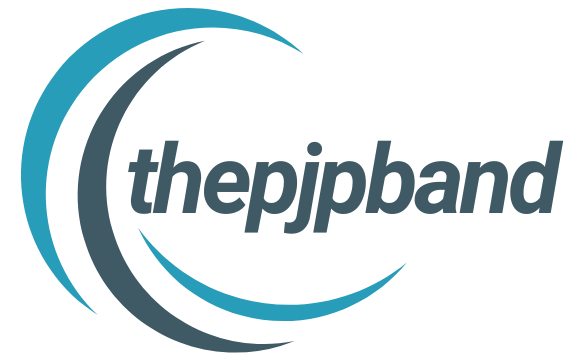In today’s fast-paced job market, navigating career paths can feel like trying to find a unicorn in a haystack. Enter the career development framework—a magical blueprint that transforms the chaos of career planning into a clear, actionable strategy. It’s like having a GPS for your professional journey, guiding individuals toward their goals while avoiding the dreaded detours of confusion and stagnation.
Think of it as a personal trainer for your career. Just as a trainer helps sculpt those biceps, a solid framework helps individuals build skills, set goals, and chart their progress. With the right approach, anyone can turn their career aspirations from a distant dream into a reality. So, buckle up and get ready to explore how a well-structured career development framework can make the climb to success not only achievable but also enjoyable.
Table of Contents
ToggleUnderstanding Career Development Framework
A career development framework serves as a structured approach for individuals navigating their professional paths. It aids in aligning personal ambitions with actionable strategies that facilitate growth.
Definition of Career Development Framework
A career development framework embodies a set of guidelines and tools designed to assist in professional growth. It includes various elements such as self-assessment, goal setting, and skill enhancement. By utilizing a structured framework, individuals gain clarity about their career objectives and the steps necessary to achieve them. This comprehensive approach transforms abstract career goals into specific, manageable actions.
Importance of Career Development Framework
The significance of a career development framework lies in its capability to create a roadmap for success. With increasing competition, a clear framework helps individuals identify their strengths and weaknesses. It fosters continuous learning and adaptation, essential qualities in a dynamic job market. Individuals who engage in a structured approach are more likely to seize opportunities and enhance their employability. Tracking progress becomes easier, allowing for timely adjustments in strategies aligned with career aspirations.
Key Components of Career Development Framework

The career development framework relies on several key components. These elements guide individuals in their professional journeys, facilitating growth and success.
Skills Assessment
Skills assessment identifies individual strengths and weaknesses. This process includes self-reflection and feedback from peers. It helps individuals recognize their current skill sets and areas for improvement. By understanding these aspects, they can tailor their development plans for better outcomes. Utilizing tools like online assessments or workshops enhances this evaluation. Regular check-ins ensure that skills assessment remains relevant throughout their careers.
Goal Setting
Goal setting establishes a clear direction for career aspirations. Individuals define short-term and long-term objectives. Achievable milestones support motivation and progress tracking. Documenting these goals promotes accountability and clarity in one’s path. Specificity in goal formulation increases the likelihood of success. Reviewing goals periodically allows for necessary adjustments to keep pace with changing circumstances in the job market.
Development Opportunities
Development opportunities broaden professional expertise and experience. Engaging in training programs and workshops advances specific skills. Networking with professionals in similar fields opens doors for collaboration. Mentorship programs provide guidance and insights from experienced individuals. Exploring online courses or certifications enhances knowledge in emerging areas. These opportunities foster continuous learning, essential in an evolving workforce.
Implementing a Career Development Framework
Implementing a career development framework involves actionable steps that guide individuals toward their professional aspirations. Creating a structured plan and tracking progress enhances the journey significantly.
Creating an Action Plan
A well-defined action plan serves as the backbone of a successful career development framework. First, individuals must identify their career goals, both short-term and long-term. Next, breaking these goals into manageable tasks encourages focus and motivation. Individuals can then allocate timeframes for completing each task, ensuring accountability. Additionally, incorporating resources such as training programs, books, or online courses strengthens the plan. Networking opportunities can also provide valuable insights and connections. Regularly reviewing and adjusting the action plan ensures it remains aligned with evolving goals.
Measuring Progress
Measuring progress offers vital insights into career development. Regular check-ins help individuals assess accomplishments relative to their action plans. Setting specific milestones allows for easy evaluation of success. Utilizing self-assessment tools and seeking feedback from peers can identify areas needing improvement. Keeping a journal tracking experiences and challenges promotes reflective learning. Establishing a routine for these evaluations enhances motivation and accountability. Adapting strategies based on assessment findings ensures ongoing growth and progress toward career objectives.
Challenges in Career Development Framework
Navigating a career development framework presents several challenges that can hinder progress. Understanding these obstacles can help individuals address them effectively.
Common Obstacles
Limited self-awareness often impedes career advancement. Individuals may struggle to identify their strengths and weaknesses, impacting their ability to set realistic goals. Additionally, external factors like economic changes and job market fluctuations can create uncertainty. Lack of access to resources, such as training programs and mentorship opportunities, further complicates development. Many employees also face time constraints that prevent them from engaging fully in their growth plans. This combination of barriers can lead to frustration and stagnation in professional journeys.
Strategies to Overcome Challenges
Utilizing self-assessment tools can enhance self-awareness. Regular feedback from peers provides valuable insights that allow individuals to refine their skills. Setting clear, achievable goals helps maintain focus and motivation despite distractions. To combat external barriers, individuals should remain informed about industry trends. Finding online resources or joining professional networks can expand access to development opportunities. Prioritizing time for career planning amid busy schedules creates space for growth. Emphasizing continuous learning fosters adaptability and resilience in a changing job market.
A well-structured career development framework empowers individuals to navigate their professional journeys with confidence. By providing clear guidelines and actionable strategies, it transforms chaotic career planning into a focused path toward success. This framework not only helps in identifying personal strengths and weaknesses but also encourages continuous learning and adaptability.
As individuals engage with their career development plans, they can seize opportunities and enhance their employability. Regular self-assessment and goal setting ensure that they remain aligned with their aspirations. Ultimately, a robust career development framework fosters growth and resilience in an ever-changing job market, making it an essential tool for anyone looking to thrive professionally.





